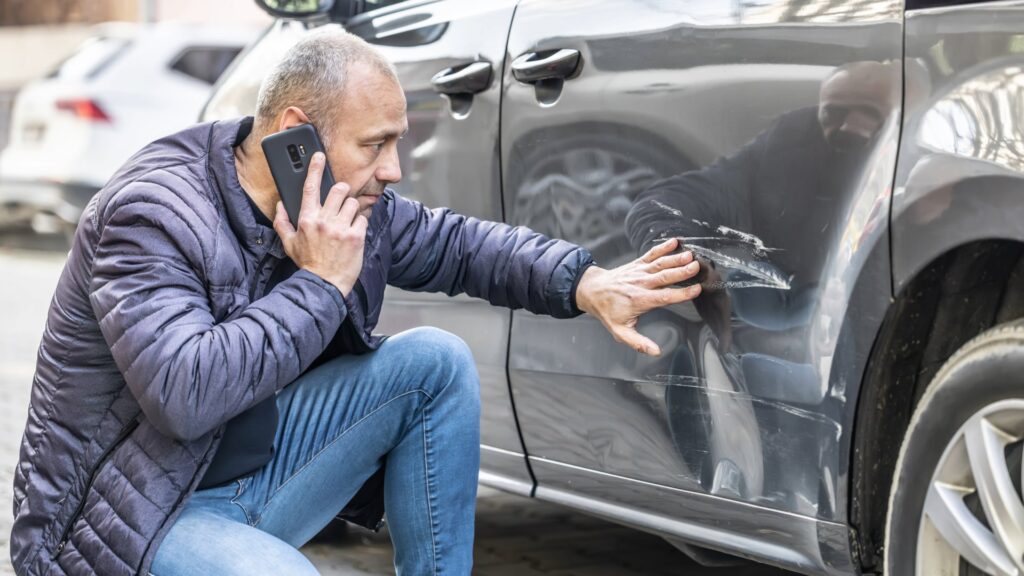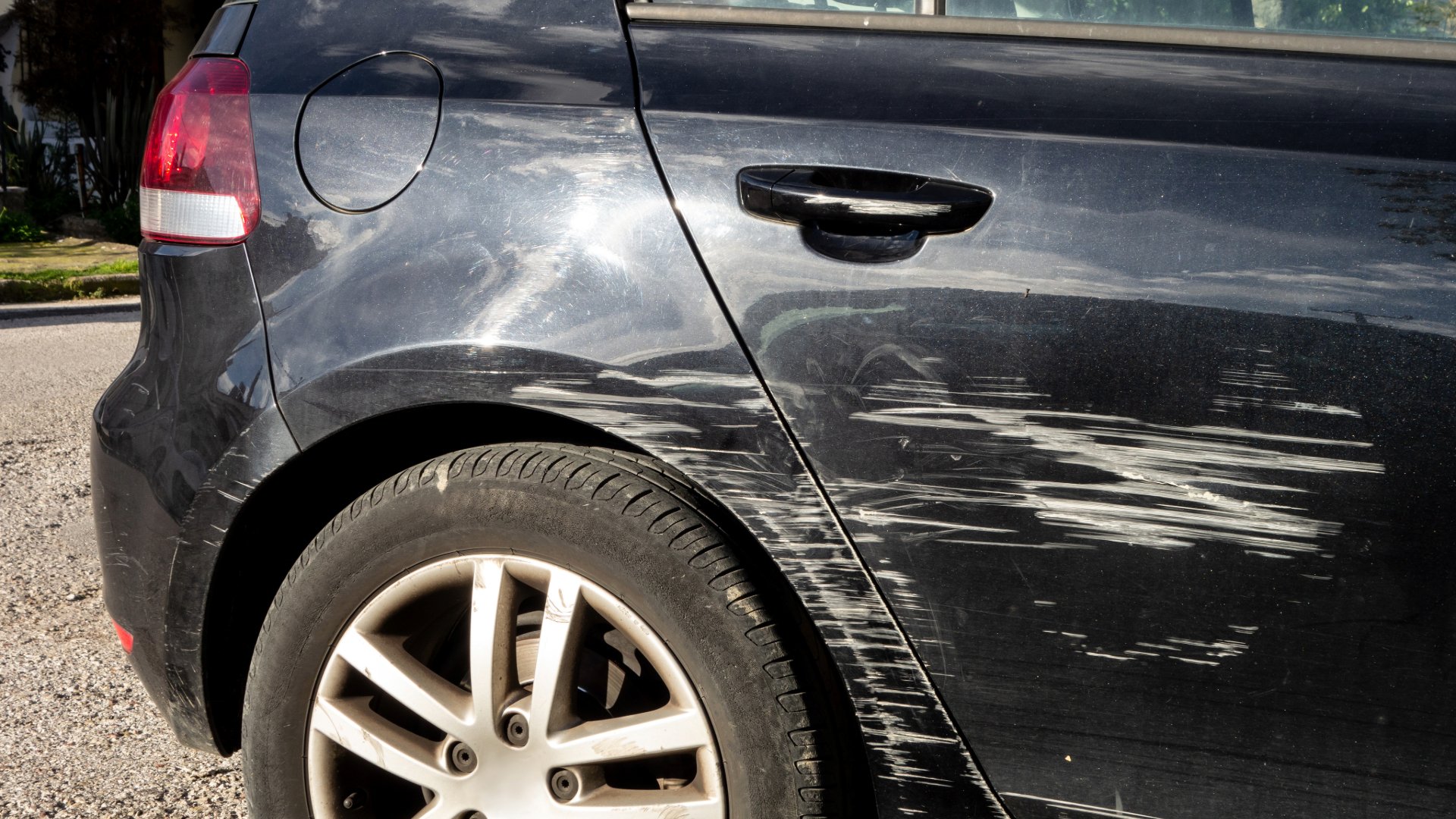Scratching your car is not just a cosmetic issue—it can also depreciate its value and lead to rust problems if left untreated. But before you rush to fix it, understanding the severity of the scratch is crucial. This comprehensive guide will walk you through assessing the damage, offering quick DIY solutions for minor marks, and advising when professional help is necessary for more serious damages. Whether you are an everyday driver or a vehicle enthusiast, knowing the right steps to take can save you time, money, and a lot of stress.
Assessing the Scratch on Your Car
Before attempting any repair on a scratched car, it is crucial to assess the scratch accurately. Proper assessment ensures that the correct repair method is chosen, potentially saving time and money. Evaluating scratch damage also helps in understanding whether the scratch affects the car’s aesthetics or if it poses a risk to the underlying metal, which could lead to rust.
Scratches on a car can typically be classified into three categories: clear coat, base coat, and primer coat scratches. To determine the depth, utilise the fingernail test. Gently run a fingernail across the scratch. If it catches, the scratch is likely deeper than the clear coat. Clear coat scratches are the most superficial, affecting only the topmost layer, whereas base coat scratches are deeper and may require more intensive repair. Primer coat scratches are the deepest, exposing the metal and necessitating immediate attention to prevent rust.
- Use a fingernail test: does it catch?
- Is the scratch visibly rusting?
- Does the scratch affect paint texture?
- Is there a visible colour change in the scratch?
- How wide or long is the scratch?
Quick Fixes for Minor Car Scratches
For those dealing with minor car scratches, DIY scratch repair methods offer a cost-effective and swift solution. The simplest approach involves using a liquid scratch remover, which is applied with a polishing pad. This method is effective for clear coat scratches, as the liquid fills in the scratch, and the pad buffs it to a glossy finish. Another option is to use a car scratch repair kit, which generally includes the necessary materials and instructions for self-repair. These kits are designed for easy use, typically requiring only basic skills to restore the car’s appearance.
- Turtle Wax Scratch Repair & Renew
- Meguiar’s Scratch X
- 3M Scratch Remover
- Autoglym Scratch Removal Complete Kit
While many minor scratches can be addressed with home remedies, there are instances where professional help is recommended. If the scratch is still visible after using a DIY kit or if the scratch is deeper than initially thought, consulting with a professional repair service would be prudent. This ensures that any underlying damage is addressed, and the vehicle’s finish is seamlessly restored.
| Product | Estimated Cost (£) |
|---|---|
| Turtle Wax Scratch Repair & Renew | 15 |
| Meguiar’s Scratch X | 18 |
| 3M Scratch Remover | 20 |
When to Seek Professional Scratch Repair
DIY methods can be effective for minor surface scratches, but there are situations when they fall short. If the scratch penetrates beyond the clear coat and exposes the base or primer layers, professional scratch repair becomes necessary. Deep scratches not only impair the car’s aesthetic appeal but may also lead to rust if left untreated, impacting the vehicle’s long-term value and integrity.
The costs associated with professional scratch repair can vary significantly based on the scratch severity and the service provider. Simple detailing work might range from £50 to £150, while more comprehensive paint jobs can escalate to several hundred pounds. Despite the expense, the benefits of professional help are manifold. Skilled technicians use advanced techniques and high-quality materials to ensure the repair is seamlessly matched to the car’s original finish. Additionally, professional services come with the expertise to identify and address any hidden damage that might not be visible to an untrained eye, ensuring the vehicle’s safety and performance are uncompromised.
Recommended Professional Services
For those seeking reliable solutions, professional services like those offered by velocitycarspray.co.uk are highly recommended. They provide a range of services, including detailing options and complete paint jobs, tailored to meet different needs and budgets. These professionals are equipped to handle complex repairs, ensuring high-quality results that DIY kits might fail to achieve. Opting for such services not only guarantees a refined finish but also preserves the vehicle’s resale value by maintaining its structural and aesthetic integrity.

Cost Estimation for Car Scratch Repairs
Estimating the cost of car scratch repairs can vary widely based on the extent of the damage and the repair method chosen. For minor scratches, a DIY approach using professional kits can range from £20 to £30. These kits often include everything needed for a basic repair and are suitable for superficial scratches affecting only the clear coat. However, if the scratch is deeper and requires a more extensive repair, professional services become necessary. Detailing and paint jobs are more expensive, with costs starting at £50 and potentially reaching several hundred pounds, depending on the severity of the damage and the car model.
- Scratch depth: Deeper scratches are more costly to repair.
- Car model: Luxury or rare models may incur higher repair costs.
- Repair method: DIY kits are cheaper than professional services.
When extensive damage occurs, making an insurance claim is a viable option to cover repair expenses. Begin by contacting your insurance provider to report the incident and provide necessary documentation, such as photos of the damage and repair estimates. It is essential to understand your policy’s coverage specifics, including deductibles and premium impacts, to make an informed decision about whether to claim.
Preventive Measures to Avoid Future Scratches
Preventive care is essential to maintain a car’s appearance and protect its value over time. By taking proactive steps, car owners can significantly reduce the likelihood of scratches and other surface damages. Regular waxing forms a protective barrier on the car’s paint, helping to repel minor abrasions and contaminants. Additionally, paint protection films offer an extra layer of defence against scratches, especially in high-risk areas like door edges and bumpers. Simple actions, such as using car covers and choosing shaded parking spots, can also safeguard the car from environmental factors that contribute to surface wear.
- Apply regular waxing to shield the paint.
- Use car covers when parked outdoors.
- Park in shaded areas to avoid harsh sun exposure.
- Install paint protection films on vulnerable parts.
- Avoid parking too close to other vehicles.
Final Words
Understanding what to do if you scratch your car is essential for maintaining its appearance and value. By assessing the damage, deciding between quick DIY fixes, and recognising when professional help is needed, car owners can effectively manage scratches. Weighing repair costs and considering preventive measures can further protect your vehicle from future damage. Regular care and maintenance not only enhance your car’s aesthetics but also ensure longevity and performance. Embracing these strategies will keep your vehicle looking its best on the road.
FAQ
How to remove deep scratches from a car?
To remove deep scratches, use a specialised scratch repair kit. Ensure the area is clean and follow the kit instructions carefully to avoid further damage. Deep scratches may require professional assistance.
What to do if you scratch your car at home?
If you scratch your car at home, assess the scratch depth first using a fingernail test. Clean the area and apply a scratch remover kit for minor damage or consult a professional for deeper scratches.
How to get rid of white scratches on a car?
Removing white scratches involves cleaning the area and using a scratch removal product, such as a polished compound, to buff out the scratch gently. Follow up with waxing to protect the paint.
Is toothpaste effective for removing car scratches?
Toothpaste can be used for very minor surface scratches. Apply a small amount on a damp cloth, rub gently in a circular motion, and wipe clean. However, commercial products are more reliable.
How can I remove scratches from a black car at home?
For black cars, use specialised scratch remover or polish designed for dark paint. Follow the application instructions carefully to avoid swirl marks and maintain the car’s finish.
What should I do if I slightly scratch a car?
If you slightly scratch a car, clean the area and use a scratch remover or touch-up paint. For bare metal exposure, prompt attention is needed to prevent rust.
Can I fix a scratch on my car by myself?
Yes, minor scratches can be fixed using DIY methods, including scratch repair kits or liquid scratch removers. Deeper scratches might require professional assessment and repair.
What happens if you scratch your own car?
Scratching your own car may decrease its resale value. Prompt repair helps prevent rust and preserves the car’s appearance. You may choose to fix it yourself or seek professional help.
How much does it cost to fix a scratch on a car?
Scratch repair costs vary. DIY kits cost £10-£30, while professional repairs range widely, depending on scratch severity and service type, from minor jobs to complete paint services.

